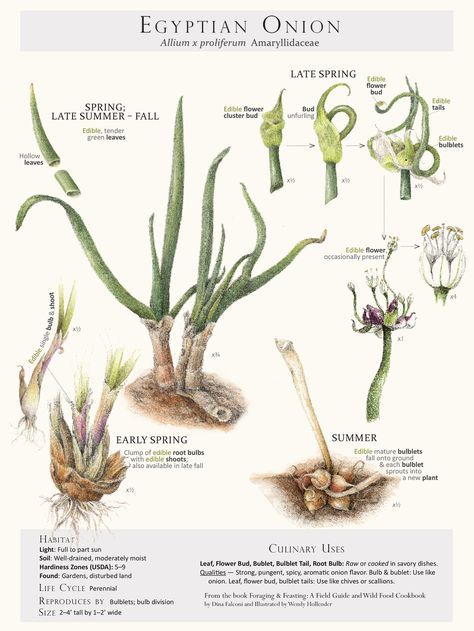
 6
6




Invasive plants are Earth's way of insisting we notice her medicines. Stephen Herrod Buhner
Everyone learns what works by learning what doesn't work. Stephen Herrod Buhner
 3
3




 2
2




Invasive plants are Earth's way of insisting we notice her medicines. Stephen Herrod Buhner
Everyone learns what works by learning what doesn't work. Stephen Herrod Buhner
 2
2




 7
7




 2
2




 4
4




Eric Grenier says: The bulbuls are meant to stay attached to the mother plant to ensure reseeding. The mother (large onion) plant will fight and win against any weed/ grass. Im going to try this next year as I will be on my third year on some of my plants
Let the bulbils get as big as they can and let them reseed or separate them and and turn 11 plants into 110 aprox next year.
let those walking onions grow up and lean down into your new bed. Work that bed with a pitch fork or broad fork and add mulch after putting a little soil on the bent over plant and keep it attached to its mother. Nature will do the rest.
Dylan Mulder says: Here's a tip for walking onions,
If you cut the flowering stalk, or rather, the 'bulbil bearing' stalk before it can make bulbils it will sink its energy into making larger bulbs instead. Doing this, I've gotten them to the size of a large shallot.
Invasive plants are Earth's way of insisting we notice her medicines. Stephen Herrod Buhner
Everyone learns what works by learning what doesn't work. Stephen Herrod Buhner
 3
3





Invasive plants are Earth's way of insisting we notice her medicines. Stephen Herrod Buhner
Everyone learns what works by learning what doesn't work. Stephen Herrod Buhner
 2
2




Invasive plants are Earth's way of insisting we notice her medicines. Stephen Herrod Buhner
Everyone learns what works by learning what doesn't work. Stephen Herrod Buhner
 3
3




 3
3




Invasive plants are Earth's way of insisting we notice her medicines. Stephen Herrod Buhner
Everyone learns what works by learning what doesn't work. Stephen Herrod Buhner
 2
2




Living in Piedmont NC, attempting restoration of four acres

 2
2




- Tim's Homestead Journal - Purchase a copy of Building a Better World in Your Backyard - Purchase 6 Decks of Permaculture Cards -
- Purchase 12x Decks of Permaculture Cards - Purchase a copy of the SKIP Book - Purchase 12x copies of Building a Better World in your Backyard
 2
2




Invasive plants are Earth's way of insisting we notice her medicines. Stephen Herrod Buhner
Everyone learns what works by learning what doesn't work. Stephen Herrod Buhner
 3
3




 3
3




 3
3




Invasive plants are Earth's way of insisting we notice her medicines. Stephen Herrod Buhner
Everyone learns what works by learning what doesn't work. Stephen Herrod Buhner
 4
4




 3
3




 3
3





 3
3




Working toward a permaculture-strong retirement near sunny Sperling.
 3
3




Derek Thille wrote:When I first learned about these I enjoyed the "neato" factor, but as always wonder if it can grow in our cold climate. I think I did see some available locally, so I'll have to give these a shot. I'm attempting to grow some butternut, so learning they are juglone-resistant gives me something I can interplant among the butternut.
We do have an abundance of chives and are developing our collection of garlic chives. They do well here, so if the walking onions fail, we'll be fine, if a bit disappointed.












 1
1




- Tim's Homestead Journal - Purchase a copy of Building a Better World in Your Backyard - Purchase 6 Decks of Permaculture Cards -
- Purchase 12x Decks of Permaculture Cards - Purchase a copy of the SKIP Book - Purchase 12x copies of Building a Better World in your Backyard

|
For your bravery above and beyond the call of duty, I hereby award you this tiny ad:
Play Your Way to a Sustainable Lifestyle: Uncover Permaculture Principles with Each Card
https://gardener-gift.com/
|









